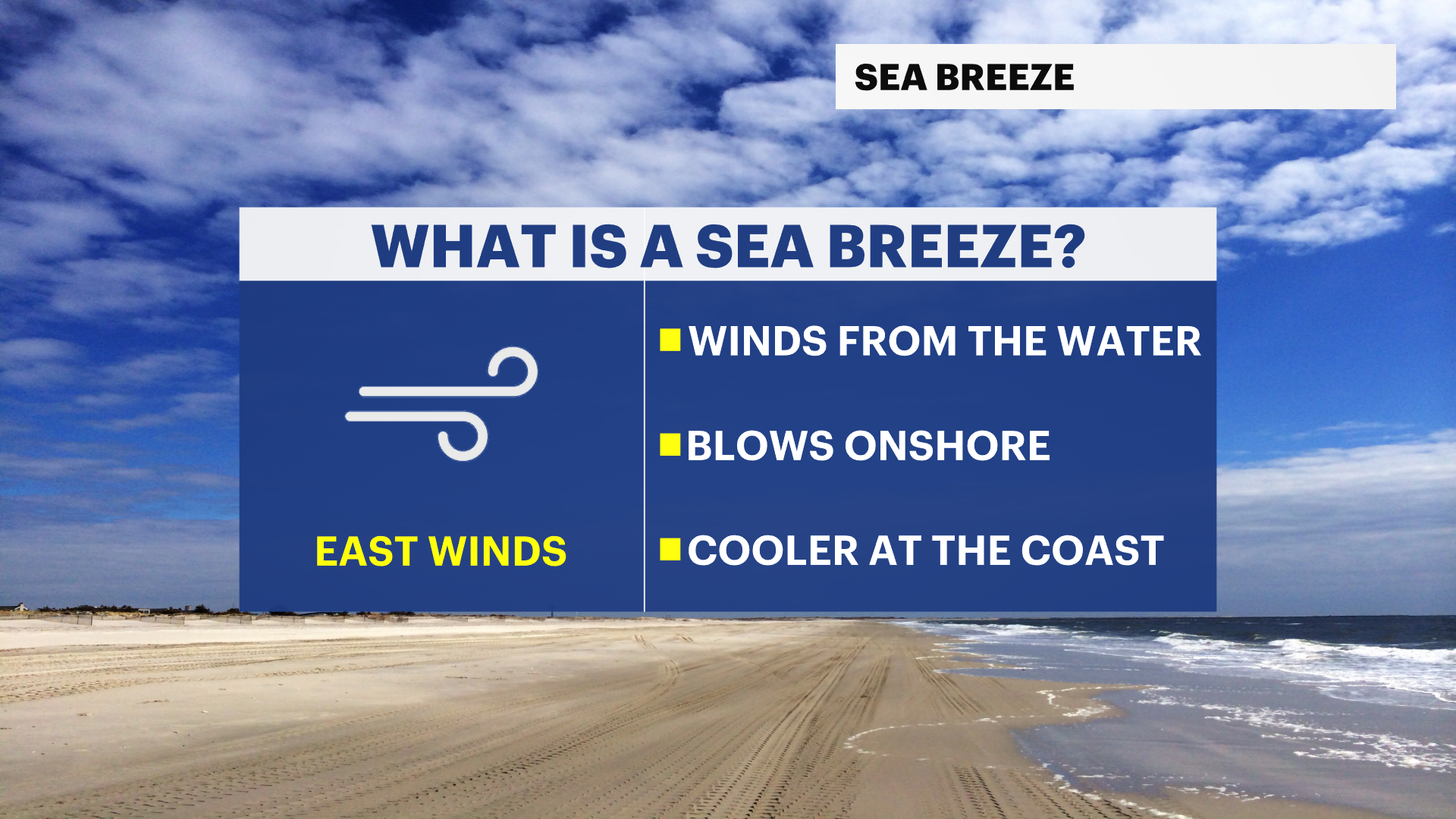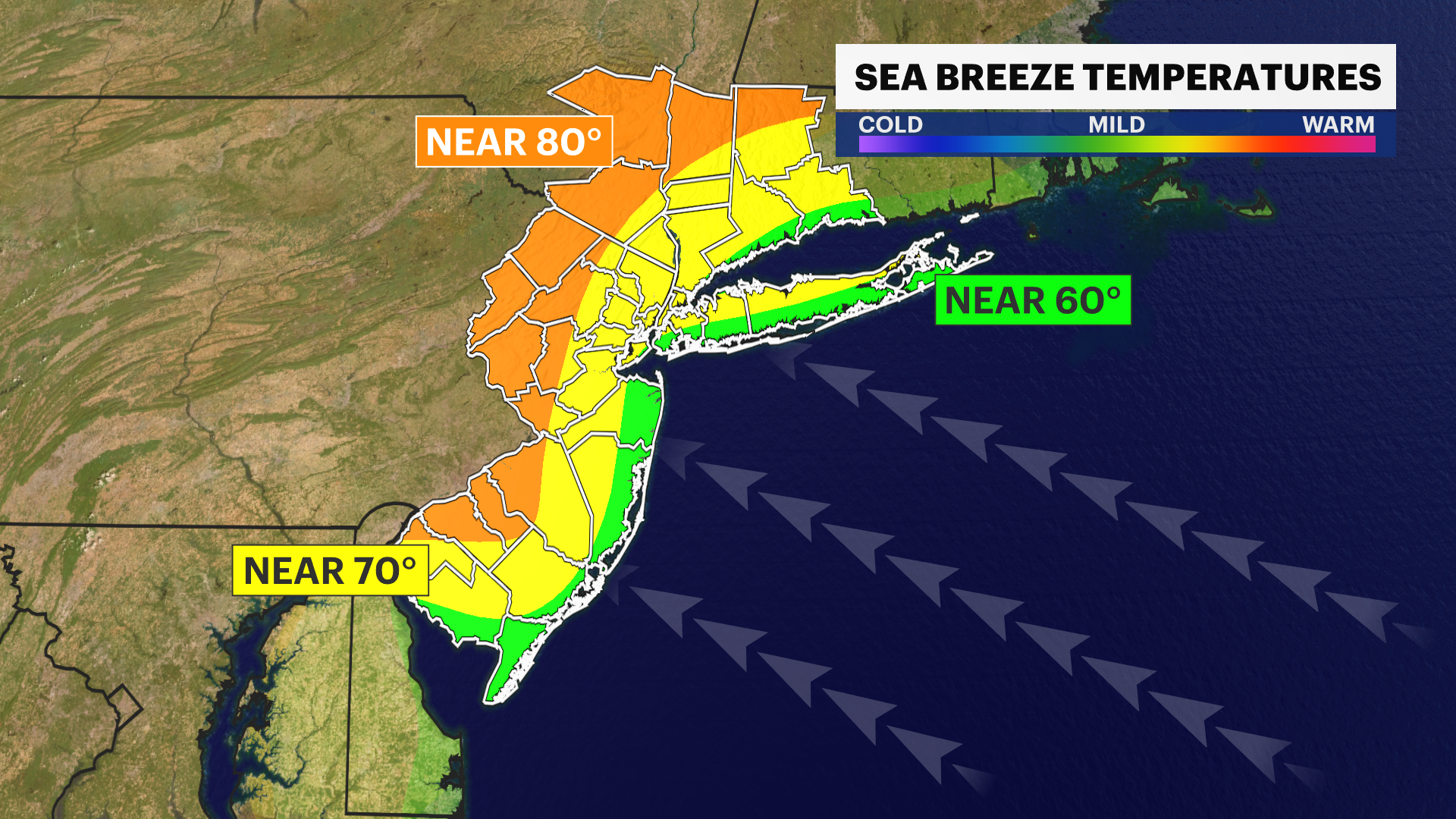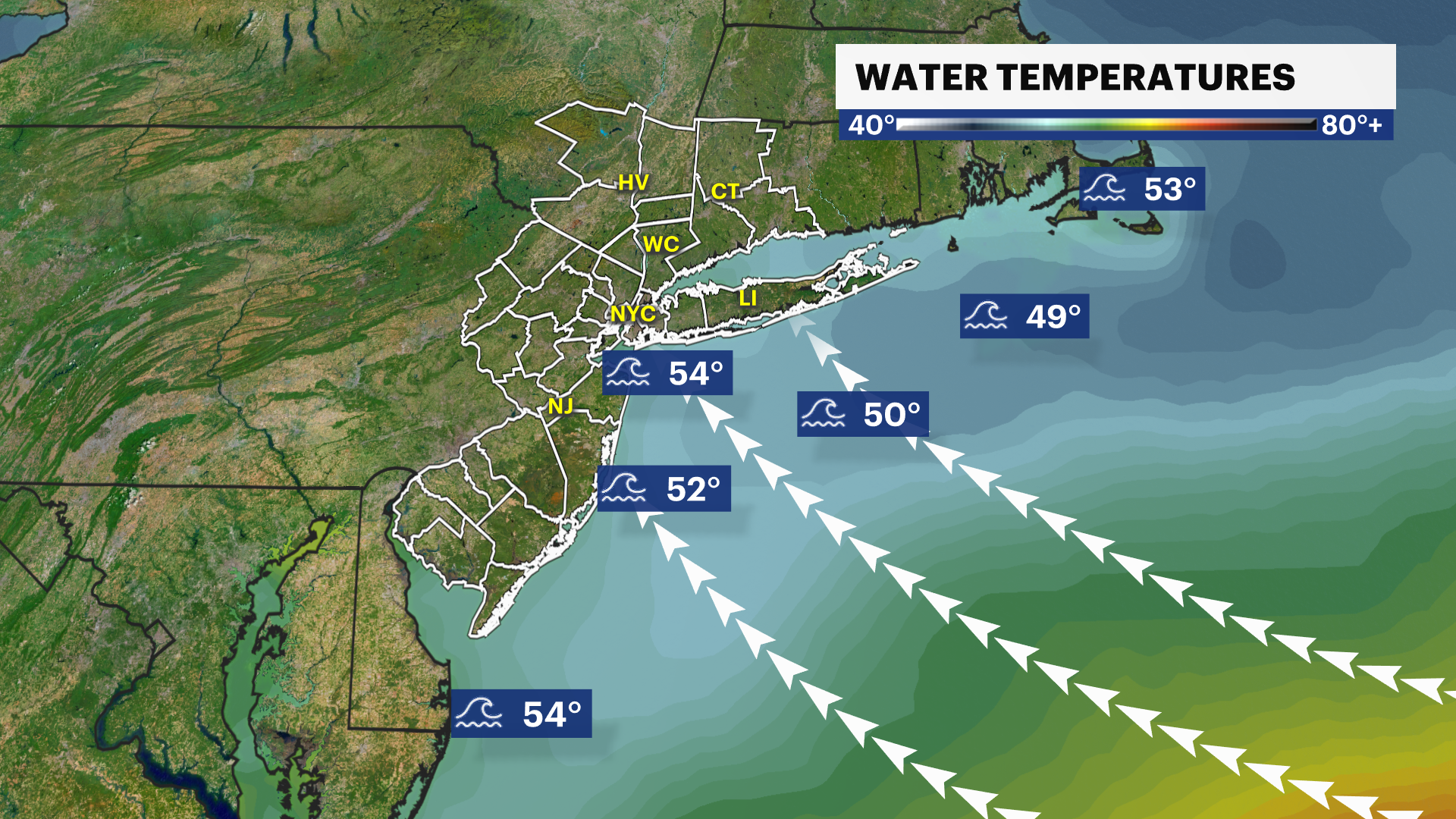More Stories
Ever wondered why it’s cooler in one area compared to another?
The influence of a sea breeze can make a warm, sunny day much cooler depending on where you are. The sun heats up on land faster than water. When the ground heats up faster, warm air begins to rise. Since water is cooler than the land, the air begins to sink. The air on land and water starts the mix, and the cool air from the ocean extends further inland creating a sea breeze.

On a hot summer day, a sea breeze can provide relief from high heat and humidity. Meanwhile, further inland a sea breeze will keep temperatures warmer. In short, the further you are from the water, the warmer it’s going to be. However, strong westerly winds can prevent a sea breeze from moving onshore, impacting thunderstorms.

A sea breeze can even impact thunderstorms. Did you know that as storms approach coastal communities, the influence of a sea breeze can weaken thunderstorms due to winds coming off the water? However, at night, the sea breeze weakens due to the loss of daytime heating. This can enhance the risk for approaching thunderstorms to hold together as it moves toward the coast. A nighttime sea breeze has a cooling effect on coastal and inland communities. Temperatures have a subtle change in range.

Coastal communities in New York City, south-facing shores in Long Island, coastal Connecticut and even the Jersey Shore is impacted by sea breezes. A strong sea breeze from the east can bring a wide range of temperatures across the tri-state. Especially, when the ocean temperature can range from 40-50 degrees, an 80 degree day inland can leave temperatures along the coast in the 60s.
Your News 12 Storm Watch Team has you covered with your hyperlocal forecast.
More from News 12
2:43

Bronx day care owner, husband sentenced to 25 years to life in prison after child dies from exposure to fentanyl
1:48

Gas prices jump 9 cents overnight in NYC
2:06

NYC reopens legal window for sexual assault survivors to sue abusers and institutions
2:28

Annual "Bronx Week" cancelled for 2026
2:17

WEATHER TO WATCH: Downpours on Thursday ahead of spring-like temps in The Bronx
0:17
